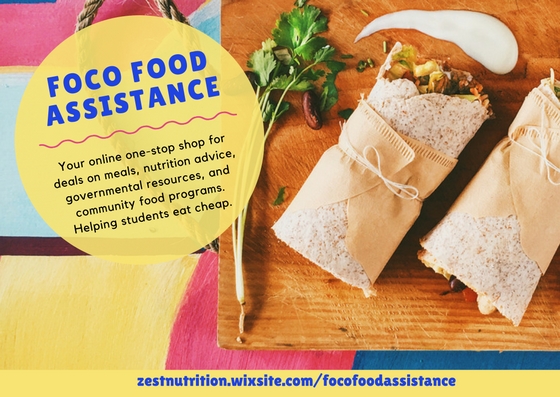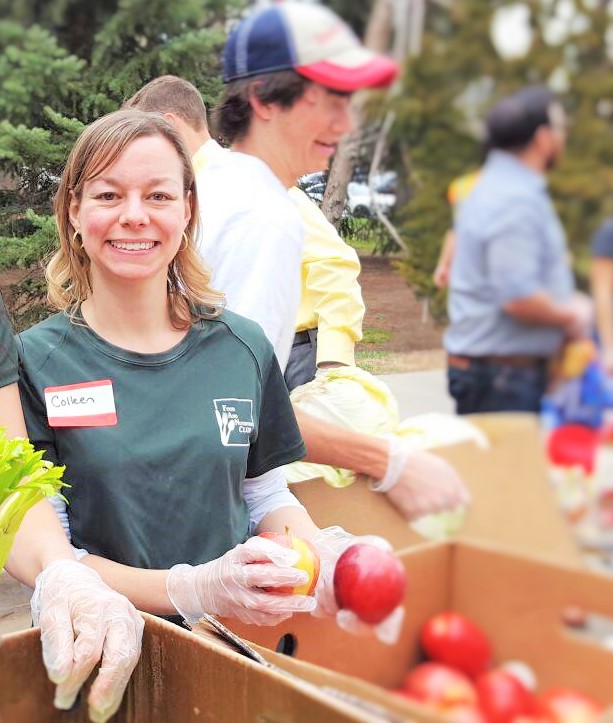
What local resources are available for those who can’t afford to eat?
Several Fort Collins community members and CSU students who ask this question may have had a difficult time finding all of the options available to them — until Colleen Wysocki took the initiative to compile all of the information on a website that she developed.
“I learned in May that there are between 3,500 and 7,000 students and community members dealing with food insecurity,” said Wysocki, a master’s student in the Department of Food Science and Human Nutrition. “After doing a year of research on this issue, I still couldn’t explain to someone exactly how to get help, so I created a website.”
Wysocki’s website, FoCo Food Assistance, is a “one-stop shop” for those who experience food insecurity and are looking for resources. Wysocki compiled links to different assistance programs and wrote explanations of what they are, how they operate and what to expect from each service. The website includes information about how to receive food stamps, local food pantries’ locations and criteria to apply for government-sponsored programs.
“FoCo Food Assistance seeks to remove the stigma of asking for handouts by pointing students in the direction of fun gatherings they can attend with friends without revealing their struggles with food insecurity,” said Wysocki.
For instance, recently a blog highlighted free food for Halloween and National Sandwich Day, free wine and cheese tastings and CSU’s mobile pantry. “I cannot imagine how frightening it could be for a new member of the community to not know where or how to find these resources,” she said.

Colleen Wysocki, volunteering at the CSU mobile pantry
In addition to having all of the information readily available, Wysocki writes blog posts that have more information about food insecurity and ideas that are targeted toward college students. When someone subscribes they receive three blog posts a week.
The first blog focuses on evidence-based nutrition tips, the second features a coupon of the week, and the third blog is titled “Food Freebies.” This blog is directed at students’ desires for social events and tasty treats like pizza or smoothies. The article features locations where students can find free or highly discounted food. The articles are written with students in mind, acknowledging their busy schedules and transportation concerns by suggesting local places to get “deals on meals” near campus.
The website also contains a resource for those who would like to speak to a nutritionist about personal health and diet concerns; FoCo Food Assistance provides a link to book an appointment either in person or over Skype. These meetings can be used to help address more specific needs and concerns of the individuals who use the resources provided on a daily basis.
“In 2015, an estimated 1 in 8 Americans were food insecure, defined as a lack of consistent access to enough food for an active, healthy life,” said Michael Pagliassotti, head of the Department of Food Science and Human Nutrition at CSU. “Colleen is passionate about understanding how to help those who are food insecure. This website is an important step in the right direction.”
Wysocki is completing the CSU Coordinated Master’s Program in Nutrition this year. The program’s mandatory dietetic internship will keep her on campus until she graduates in May and can sit for the board exam to become a licensed dietitian.
“As long as I am here, I will continue to promote ways for food-insecure students to get help and utilize the resources available to them,” Wysocki said.
The Department of Food Science and Human Nutrition is in CSU’s College of Health and Human Sciences.